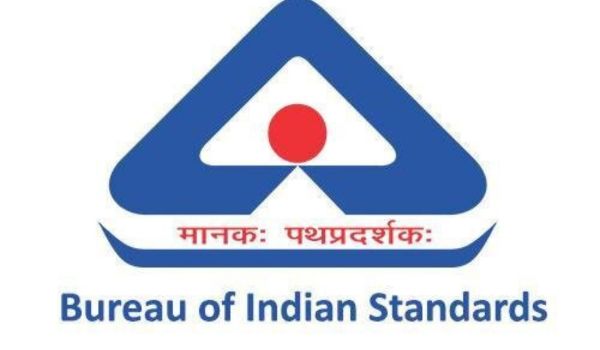


BIS Registration in India ensures that a product meets all the necessary Indian Standards (IS) and is safe for consumer use.
In India’s fast-paced industrial and electronics market, quality and safety are non-negotiable. Consumers expect reliable products, and the government mandates strict regulations to ensure that expectation is met. One such important regulation is the BIS CRS Registration — a certification that guarantees product quality and safety under the Bureau of Indian Standards (BIS).
For manufacturers and importers, BIS Registration in India is not just a formality — it’s a crucial step toward compliance, credibility, and market success. Let’s understand in detail what this certification means, why it’s required, and how ECS India can help you get it easily.
The Bureau of Indian Standards (BIS) is India’s national standards body under the Ministry of Consumer Affairs, Food & Public Distribution. It formulates standards, conducts testing, and issues certifications for various types of products to ensure quality, safety, and reliability.
BIS Registration in India ensures that a product meets all the necessary Indian Standards (IS) and is safe for consumer use.
For electronics and IT products, the relevant certification is known as the Compulsory Registration Scheme (CRS).
Introduced in 2012 by the Ministry of Electronics and Information Technology (MeitY), the Compulsory Registration Scheme (CRS) applies to specific categories of electronic and IT goods that must be registered with BIS before being sold in India.
The BIS CRS Certification ensures that electronic products comply with Indian safety standards. It protects consumers from hazards like electric shock, fire, or device failure while also ensuring fair competition in the market.
Manufacturers, both Indian and foreign, must obtain BIS CRS Registration for listed electronic items before placing them on the Indian market.
The BIS CRS list includes a wide range of electronic and IT products such as:
Mobile phones and tablets
Laptops, power banks, and chargers
Smart TVs, monitors, and display panels
LED lights and control gears
Wireless keyboards and Bluetooth speakers
Set-top boxes and UPS/inverters
Currently, more than 80 product categories are covered under the BIS CRS scheme, and the list keeps expanding with new technological advancements.
BIS registration is more than just a compliance certificate — it’s a mark of safety, trust, and quality.
Here’s why it’s essential:
✅ Mandatory by Law: It’s compulsory for all manufacturers and importers of electronic goods listed under BIS CRS.
✅ Consumer Confidence: BIS-certified products assure safety and quality, building consumer trust.
✅ Market Authorization: Without BIS registration, you cannot legally sell or import electronic products in India.
✅ Brand Credibility: BIS certification adds a stamp of reliability to your brand name.
✅ Avoid Legal Issues: Non-compliance can lead to product bans, penalties, and reputational loss.
With BIS CRS Certification, businesses can ensure legal compliance and long-term brand reputation in the Indian market.
The following entities must obtain BIS registration:
Indian Manufacturers: Producing electronic goods within India.
Foreign Manufacturers: Exporting electronic products to India.
Importers or Brand Owners: Importing products manufactured abroad under their own brand.
E-commerce Sellers: Selling listed products online in India.
Foreign manufacturers are required to appoint an Authorized Indian Representative (AIR) who will coordinate with BIS and act on their behalf during the certification process.
Obtaining BIS CRS Registration in India involves a series of structured steps. Here’s a detailed breakdown:
Each electronic product has a corresponding Indian Standard (IS) number that defines its testing parameters. Identify which standard applies to your product.
Send your product sample to a BIS-recognized laboratory in India for testing. The test ensures compliance with the relevant Indian Standard and generates a test report.
Gather all necessary documents, including:
Business or factory license
ISO 9001 certificate
Trademark registration
Product manual and technical details
Brand authorization (if applicable)
Test report from BIS-approved lab
Register on the BIS portal and submit your application with the required documents and test report.
BIS officials review the documents and test results. If everything is in order, your registration is approved.
Once approved, you receive a Unique Registration Number (URN). This number must appear on every product and its packaging.
The BIS CRS certificate is valid for two years from the date of issuance.
Manufacturers can apply for renewal before expiry by providing updated test reports and documentation.
Regular renewals help ensure uninterrupted sales and compliance.
Here’s a quick checklist of what you’ll need:
Test report from BIS-approved lab
Business registration or factory license
ISO 9001:2015 certificate
Trademark registration or brand authorization
Product specifications and technical documents
Import-export code (for foreign applicants)
Factory layout and production details
Navigating the BIS registration process can be confusing — but with ECS India, it becomes quick, simple, and stress-free.
ECS India is a leading BIS certification consultancy in India, offering complete assistance from start to finish.
Product testing coordination with BIS labs
Preparation and review of documentation
Filing online applications on the BIS portal
Continuous follow-up and status tracking
Renewal and post-certification support
We ensure your certification is completed efficiently and cost-effectively, without unnecessary delays.
At ECS India, we believe in simplifying compliance for businesses of all sizes. Here’s why companies trust us:
✅ Expertise: Years of experience in BIS, CRS, and ISO consultancy.
✅ Client-Centric Approach: Personalized support for each client.
✅ Transparent Process: No hidden costs, no confusion.
✅ Fast & Reliable: Quick turnaround time with accurate documentation.
✅ Proven Track Record: Hundreds of successful BIS registrations completed.
Whether you’re a small manufacturer or a global brand, ECS India is your reliable partner for BIS CRS Certification in India.
With India becoming one of the world’s largest markets for electronics, BIS CRS Registration is more important than ever. It ensures your products meet Indian safety standards, gain customer trust, and legally enter the marketplace.
By partnering with ECS India, you can eliminate the complexity of certification and get your BIS CRS Registration completed quickly, professionally, and affordably.
📞 Call Now: +91 9582827375
🌐 Website: www.ecsindia.co
ECS India – Your Trusted Partner for BIS CRS Registration and Bureau of Indian Standards Certification in India.
